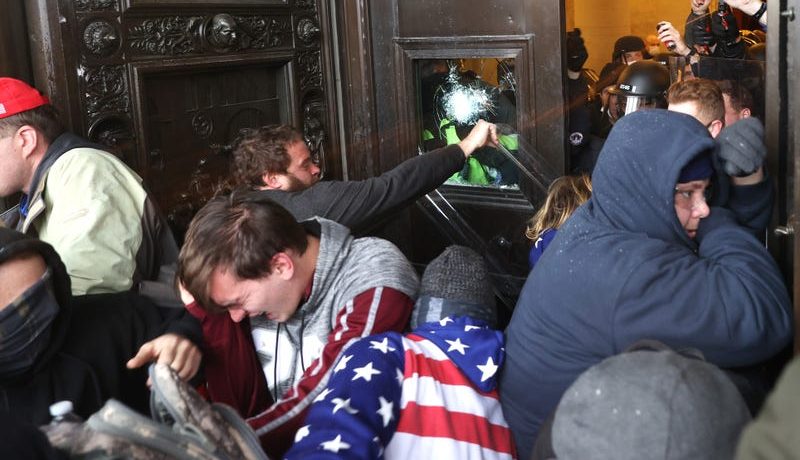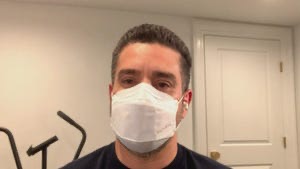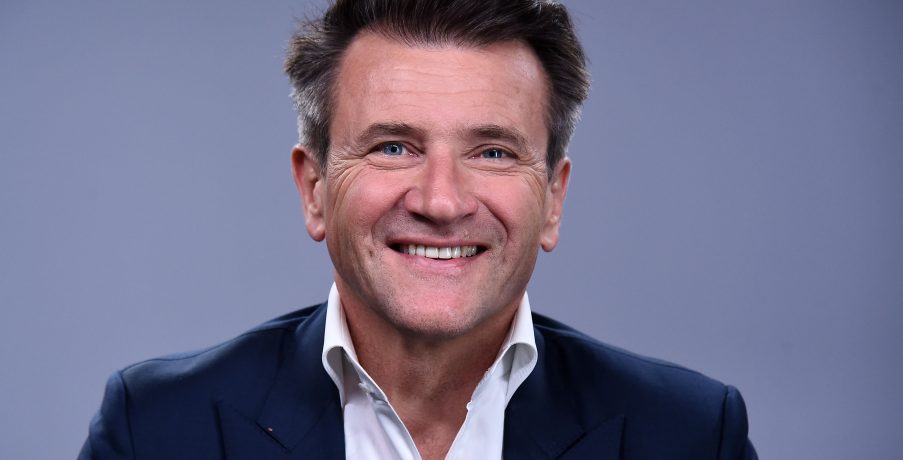
Neil A. Carousso produces NewsNation original “Kurt’s Country” – a celebration of country music and a slice of Americana with host Kurt Bardella.
The Latest

Elevate Your Business Event: Media & Strategy Mastery

Mastering Media Strategies: Insights from Industry Veterans

The Multi-Tiered Approach to Gaining Exposure and Credibility. Become a Repeat Source for the Media

Husband Sent Flirty Texts before Mica Miller’s Death, Waitress Says

Kristi Noem on Retraction: Kim Jong Un ‘Should Not be in the Book’

Kevin O’Leary: AI bossware can ID protesters and bar them from jobs

Neil A. Carousso Joins Growing NewsNation Network

Neil A. Carousso Departing WCBS 880

Art Business Founded by Former Foster Child Speaks to the Human Experience

1010 WINS Small Business $10K Challenge: Small Business Owners Make their Pitch for $10,000
-
WCBS 880 Special Report: Chaos in the Capitol – A Nation Divided
Posted by: Neil A. CaroussoPost Views: 890By Neil. A. Carousso and the WCBS 880 News Team
NEW YORK (WCBS 880) — The nation and the world watched in horror Wednesday as a pro-Trump insurrectionist mob stormed the U.S. Capitol in a deadly occupation that claimed the lives of five people, including a police officer.
Lawmakers, who had gathered for a joint session of Congress to certify President-elect Joe Biden’s election victory, and their staff feared for their lives as the violent mob invaded the Senate and House chambers.
Members of Congress were forced into hiding, scrambled to hide under desks, were told to don gas masks and evacuated to undisclosed safe rooms.
Anchor Lynda Lopez hosts an hour-long special, “Chaos in the Capitol – A Nation Divided,” that looks back at this week’s historic events and how they unfolded.
“Chaos at the Capitol – A Nation Divided“ will feature firsthand accounts from lawmakers and reporters who were in the nation’s Capitol when it descended into chaos, as well as analysis on how we got here, what it will take to move forward as a nation, and more.
The broadcast includes interviews with freshman Congressman Ritchie Torres of the Bronx, Rep. Carolyn Maloney, CBS News correspondent Steve Dorsey, former Long Island Congressman Steve Israel, Princeton University professor Julian Zelizer, CBS News election law expert David Becker, child psychiatrist and professor Dr. Llinda Drozdowicz and more.
Below is our segment featuring Becker, as interviewed by producer Neil A. Carousso.
Becker explains Wednesday’s riots are the culmination of a years-long disinformation campaign and discusses what it will take to restore confidence in future elections.
Neil A. Carousso contributed reporting and produced the WCBS 880 Special: Chaos in the Capitol – A Nation Divided, hosted by Lynda Lopez, on Friday, January 8, 2021, which was nationally syndicated on Entercom stations.
-
Online Sales Keep Small Businesses Afloat but Pandemic Losses Are Insurmountable
Posted by: Neil A. CaroussoPost Views: 824By Joe Connolly and Neil A. Carousso
NEW YORK (WCBS 880) — Increases in online sales are not covering losses suffered in the coronavirus pandemic for many small retailers, but it is allowing them to stay afloat during the unprecedented holidays as hospitalizations and deaths due to the virus surge.
“I’m happy to report we’re surviving,” Jennifer Bergman of West Side Kids said on the WCBS Small Business Spotlight, sponsored by BNB Bank.
Bergman’s Upper West Side toy store is in the midst of their annual busy season, but overall sales are down about 50 percent. Her busiest day of 2020 was December 9 – the day before Hanukkah.
“Our online sales have never generated enough business for me to invest in expanding that so it’s always been a real catch-22,” she explained.
Bergman is not alone. Many small businesses are struggling to develop a profitable e-commerce strategy. Those who had one in place before March were best positioned to pivot amid shutdowns, but still, it is difficult to compete with online retail giants, namely Amazon and Wal-Mart.
“It costs us a lot more to process online orders and we’re going in early and we’re staying late to get them all done,” she said.
Tom Geniesse owns Bottlerocket Wine & Spirit in the Flatiron District. He had more than a head start on his e-commerce; he owns several patents on the display of his website, which shows different pairings of wines that go well with various meals.
“The customer-centric focus is on giving people choices that map to their needs,” he told WCBS 880. “By doing that, we give people an opportunity to make better decisions when they’re making a bottle of wine.”
Geniesse is educating his customers virtually. Before opening the doors to his wine shop in 2003 with the goal of making wine more accessible to the average consumer, he owned an e-learning business company named Quisic from 1996-2001. That experience is paying dividends 19 years later.
He told Joe Connolly and Neil A. Carousso he has put Bottlerocket Wine & Spirit on numerous e-commerce platforms, including Instacart, Grubhub and other niche websites. That exposure and marketing has given him a 25 percent bump in online sales, but it does not make up for Geniesse’s overall sales losses in the pandemic. His challenge now is finding new customers who have fled Manhattan.
“People that can work remotely have continued to work remotely and residential folks in Flatiron tend to be affluent, tend to have second homes outside of the city and many of those people have moved out in March and have remained away,” said Geniesse, continuing, “We’ve really had to be entrepreneurial in finding customers that are new customers, reach to a broader audience in the city and find the people that are here and working here and living here.”
He told WCBS 880 he believes the pandemic is an inflection point on the viability of local businesses’ e-commerce sales operations.
“I do think that e-commerce has been on a 20-year trend, increasing online sales for businesses everywhere and this pandemic has hurdled us forward about 10 years in that trajectory,” said Geniesse. “We’ve always been online, we’ve always had an e-commerce platform, but I think what this has shown us is that this is critically important for us to keep our efforts focused on e-commerce and continue to grow in that way.”
Hear ideas on how to find new customers online and learn about the changing landscape of e-commerce on the WCBS Small Business Spotlight Podcast on the RADIO.COM app or on the media player above.
-
Bronx Native Develops Highly Effective Mask to Slow Community Spread of COVID-19
Posted by: Neil A. CaroussoPost Views: 912By Neil A. Carousso
NEW YORK (WCBS 880) — Not all masks provide equal protection.
Serial entrepreneur Jonathan Malveaux developed the Nano Air Mask at the outset of the pandemic as a way to bring a quality mask that blocks most viral particles to the general public. It is made using nanofiber technology.
“Whether you’re using a gaiter or some other cloth material, these very microscopic-size particles will get through it,” he explained.
Malveaux, whose mother and step-mother are nurses, realized the importance of masks in protecting oneself and others early in the pandemic even before public officials and the Centers for Disease Control and Protection advised Americans to wear masks to slow transmission.
“We just sprung into action. It was like survival mode,” he told WCBS 880’s Neil A. Carousso, recalling walking around the South Bronx neighborhood where he was raised wearing a mask before it became required by state law on public transportation and in establishments.
If there was more comfortable and breathable mask that provided strong protection against COVID-19, would you wear it? @NeilACarousso reports on the Nano Air Mask. https://t.co/3wmYsMWXSj pic.twitter.com/uANv7Zfii5
— WCBS 880 (@wcbs880) December 10, 2020
Florida Atlantic University researchers compared the Nano Air Mask with a cloth mask and summer face mask on mannequins in a visual cough simulation of how respiratory droplets would seep through a mask, potentially infecting those nearby with COVID-19. They found the Nano Air Mask best reduced how far droplets travel. Utah-based Nelson Labs performed an independent study and found it to be roughly 98 percent effective in filtering particles.
“The sort of issue that we all have to be focused on as well is leakage,” said Malveaux of how viral particles could penetrate the sides of the mask.
He leads a small team that manufactures the Nano Air Mask in Long Beach, CA; they are ramping up production as COVID-19 cases, hospitalizations and deaths soar nationwide. They are also working on a “pro version” for healthcare professionals similar to an N95 respirator, which is FDA-approved, featuring two straps that go around one’s head to reduce “leakage.”
“We’re really constantly innovating to make sure that we are offering exactly what (our customers) want,” Malveaux said. “The one thing that we won’t compromise on is the quality.”
He is perfecting the Nano Air Mask and will come out with a black colored version soon after numerous inquiries from his customers. Currently, the masks are only available in white. It costs $2.75 down from the original price of $4.50.
Malveaux looks forward to the day when we do not have to wear masks, but right now, his goal is universal mask compliance, which epidemiologists say is the key to reducing the risk of COVID-19 infection. He could envision people going out in public and attending events next year while wearing a high quality mask that will maintain a low transmission rate.
“We supply to lots of professional sports teams, athletes and owners across most major sports, which is fantastic; they have the resources to do the diligence quite quickly,” he said, adding, “Given how we grew up and what we were seeing – I grew up in the South Bronx – we wanted to not only do what would work for them, but also was affordable and would actually try to help make a difference.”
-
Flatiron District Businesses Brace for Second Wave of COVID-19
Posted by: Neil A. CaroussoPost Views: 814By Neil A. Carousso
NEW YORK (WCBS 880) — The Flatiron District – world-famous for being a vibrant technology hub, higher education center and home to restaurants, retail and tourism – is now bracing for a surge in COVID-19 infections and hospitalizations that could lead to industry shutdowns as a measure to help quell the spread.
James Mettham, executive director of the Flatiron/23rd Street Partnership, told Joe Connolly and Neil A. Carousso on the WCBS Small Business Spotlight, sponsored by BNB Bank, that a second shutdown without “true relief” in the form of forgivable federal government loans or grants, which would need to passed by Congress, would stifle business recovery.
“It’s really a call for emergency action as we hit the ledge here,” Mettham said.The Business Improvement District says 75 percent of ground-floor food, retail and services businesses have reopened or never shutdown, deemed essential, in the spring. They had to pivot in March to survive.
Small businesses that already had an e-commerce platform are best positioned to stay afloat; others are catching up and struggling to compete with Amazon, Wal-Mart and other large companies that have seen sales accelerate in the pandemic. Amazon’s sales are up 53 percent while Wal-Mart, with a growing e-commerce site, has seen sales rise 45 percent.
Mettham told WCBS 880 some food businesses in the Flatiron District have had success through so-called “re-targeting.”
“It’s been really trying to push their goods towards local residents – folks that they can rely on being in the neighborhood and familiar with their business,” he explained.
Loyalty initiatives have also helped stores attract customers who want to support their local businesses.
Many, though, say commercial rent prices must come down for businesses to survive and new businesses to thrive.
“Landlords and tenants both understand that a vibrant neighborhood that’s occupied with a mix of uses ranging with office workers, hospitality, visitors (and) students is all in the best interest of everyone,” Mettham said.
He told Connolly and Carousso several new restaurants have taken advantage of reduced entry costs and opened their doors in the Flatiron District. The BID veteran believes the two sides will negotiate and come to an agreement because the local economy depends on it; the pandemic has underscored how one industry impacts the other in a connected economy like New York.
Before joining the Flatiron District/23rd Street Partnership, Mettham served as managing director of finance and operations at the Downtown Brooklyn Partnership. He was also assistant commissioner of the New York City Department of Small Business Services (SBS) Neighborhood Development Division and executive director of SBS’ Business Improvement District Program.
On the WCBS Small Business Spotlight, Mettham talks about the Flatiron District with reverence of its history and promise for a post-pandemic city. He sees new technology companies entering the previously bustling neighborhood, which he believes is reminiscent of the tech boom in the 1990s in Manhattan South, which earned it the moniker “Silicon Alley.”
“It’s been very both resilient and flexible and innovative in its character over the years,” Mettham said, continuing, “Whether it’s been from the photography industry, the table top industry, original Silicon Alley 20 years ago, it’s always been able to build on its successes, reinvent itself and I don’t think this is going to require a full reinvention.”
Hear more about the new businesses opening in the Flatiron District and how existing ones are bracing for the second wave of the pandemic on the WCBS Small Business Spotlight Podcast on the RADIO.COM app or on the media player above.
-
Robert Herjavec’s pandemic advice to business owners: ‘When you’re going through hell… keep going’
Posted by: Neil A. CaroussoIn Best Of, Featured, Guest, Interview, Latest, News Stories, Technology, The World, Top News, videosPost Views: 1,071By Neil A. Carousso
NEW YORK (WCBS 880) — “Shark Tank” star Robert Herjavec believes the coronavirus pandemic presents an opportunity for entrepreneurs to fill needs and shares his advice for overcoming adversity on the WCBS Small Business Spotlight, sponsored by BNB Bank.
“Whatever you start doing today, your business will not be doing that in a year. Things change. The world changes. You have to adapt,” he said, adding he prefers to invest in individuals rather than single businesses on ABC’s “Shark Tank” for that reason.
“The entrepreneur will always figure out the path and the entrepreneur will build a great team in order to figure out the path,” he said.
Herjavec told Joe Connolly and Neil A. Carousso he started his first business after he was fired and needed to make a mortgage payment. He started other businesses in economic recessions.
“In this kind of a time, don’t perfect your product, don’t spend all this time on your management team or buying better software to run your business. Go sell something,” the self-made entrepreneur emphasized when asked for his advice for owners. “Sales cures all ills and the harder the economy, the harder the macro conditions, the more you need sales.”
A record 80,820 Americans have taken the first steps into entrepreneurship this year; that’s 30.6 percent more new business applications than all of 2019, according to the U.S. Census Bureau.
Herjavec represents the embodiment of the American Dream. His family escaped the former Communist country Yugoslavia in 1970 when Robert was eight years old. His father was a successful manager in Yugoslavia, but was jailed 22 times for speaking out about the dangers of communism. They immigrated to Canada where Robert’s father Vladimir swept floors in a factory.
His upbringing shaped Robert as a kid who sought to make something out of nothing, later founding BRAK Systems, which he sold to then-AT&T Canada in 2000 for $30.2 million. He currently runs the Herjavec Group – a global cybersecurity firm with its headquarters in Toronto, Canada.
“I’ve been through hell and I’ve been through some really hard times,” he told WCBS 880, recalling advice he lives by, “When you’re going through hell, you’ve just got to keep going.”
Herjavec told Connolly and Carousso that business owners who are struggling right now should take an honest assessment of the company and the market and be in contact with their customers regularly.
“The worst thing you can do in this time is nothing,” he said, continuing, “Don’t let fear overcome you to the point that you’re that deer in the headlights. You just got to keep going.”
Herjavec says he and his fellow Sharks did not know if their businesses would survive at the outset of the pandemic. He has not seen his employees in-person since February 17.
“I’m running a $300 million business; I haven’t seen a single employee,” he said from his Los Angeles home, noting it’s difficult to motivate his remote Herjavec Group team on video calls. So, Herjavec began expressing his appreciation through premium, savory cookies and brownies from Bake Me A Wish – a New York-based company whose mission is centered on expressing gratitude and appreciation for employees and colleagues.
“My dad was this blue collar guy, worked really hard, swept floors in a factory, and he always said to me, ‘You should thank people for the opportunity,'” he explained, adding, “I was just looking for a way to say thank you.”
Now, the ‘Shark Tank’ star is extending personalized gift baskets to companies who want to share their appreciation for their workers ahead of the unprecedented holidays. You can see Bake Me A Wish’s corporate catalogue, endorsed by Herjavec, here.
“You don’t have to be a jerk, you don’t have to be mean and I think it’s the opposite,” the Shark said of succeeding in business. “You’ve got to empower people. You’ve got to lead people. You have to give people vision of where they want to go.”
Watch Joe Connolly and Neil A. Carousso’s conversation with Robert Herjavec above for more business advice and keys to pitching your idea, product or business on “Shark Tank” or any boardroom.











